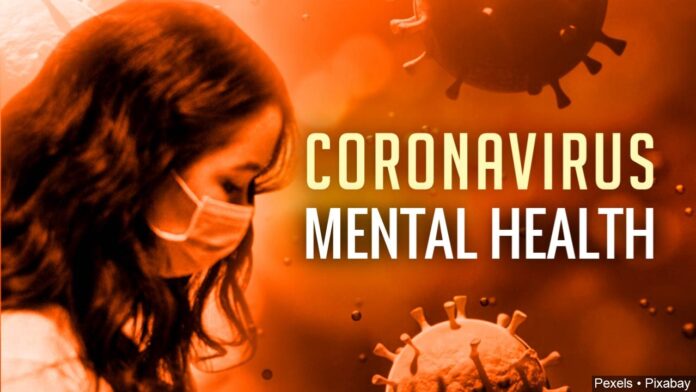As health and government officials both locally and throughout the nation continue to address the situation surrounding COVID-19, health experts are reminding the community that taking care of mental health is critical to managing challenging times.
During a crisis, fear of the unknown can cause a range of emotions that can take their toll on both mental health and quality of life, said Becky Tresnicky, director of behavioral health services & performance excellence at Valley Baptist Medical Center-Brownsville.
“Fear and anxiety about any disease can be overwhelming and cause strong emotions in all of us. With COVID-19, we are dealing with a lot of uncertainty. Our normally structured and safe living environments have been turned upside down, which can lead us to feel powerless and vulnerable,” she said. “We become victims and feel powerless over everyday events. But being able to cope with the fear and stress puts us back in control of things. It is important to take care of your basic needs and engage in healthy coping strategies.”
Those coping strategies can take shape in a variety of ways, Tresnicky said. Eating healthy foods, engaging in regular physical activity, and staying in contact with family and friends while practicing social distancing can all help with managing the stress associated with the COVID-19 situation.
Managing stress and fear can be difficult in today’s 24-hour news cycle. While it is important to stay up to date on the latest orders from local and state officials, Tresnicky said it is important to not become overwhelmed by the constant stream of COVID-19 news.
“Avoid too much exposure to news, this is so important,” she said. “Take breaks from watching, reading, or listening to news stories. It can be extremely upsetting to hear about the COVID-19 pandemic over and over.”
Although social distancing and limiting travel to necessities have caused changes to what local residents used to consider normal life, Tresnicky said there are a wide variety of activities available to unplug and take a break from COVID-19.
“Make time to unwind and remind yourself that feelings of uncertainty and fear will fade. Do deep breathing and engage in activities you enjoy. Listen to music – it really does soothe the soul! Doing even one productive thing per day can lead to a more positive attitude,” she said. “Approaching this time with a mindset of feeling trapped or stuck will only stress you out more. Maintain a routine and limit media! Try not to catastrophize; instead focus on what you can do and accept the things you can’t change – start a daily gratitude journal.”
Even with social distancing practices in place, Tresnicky said it is important to both realize when you need help managing your mental health as well as reach out to others who may be struggling during this challenging time.
“Connect with others while practicing social distancing. We are fortunate to have access to so many electronic methods of communication. Even writing letters to each other expressing your feelings will help,” she said. “Share your concerns and how you are feeling with a friend or family member. Maintain healthy relationships, and build a strong support system.Seek help when needed – if emotional distress impacts your activities of daily life talk to a mental health professional or your personal physician.”
While daily reports continue to feature news of rising COVID-19 case counts and other challenges associated with the virus, Dr. Christopher Romero, internal medicine specialist and physician adviser at Valley Baptist-Harlingen, said it is important to try to maintain a positive attitude while continuing to take measures to protect yourself and others from the virus.
“I try and stay positive and remember that things have gotten better. Remember not that long ago grocery store shelves were empty and we couldn’t easily find the bare essentials. That has improved tremendously,” he said. “I also like to keep in perspective what’s at stake. Our mortality rate has been higher than the national and state average, and we know that COVID19 is more dangerous for people with diabetes, who are overweight, or have other health problems that we see so often in the Rio Grande Valley. We still need to do my part to protect everyone around me, young and old.”
MORE INFORMATION
If you are experiencing any of the following signs or symptoms, speak with a trusted friend or family member, or call the Texas Health and Human Services Department’s COVID-19 mental health support line at (833) 986-1919. For severe depression, or suicidal/homicidal ideations, contact the National Suicide Hotline at 1-800-273-8255.
- Fear and worry about your own health and the health of your family
- Changes in sleep or eating patterns
- Difficulty sleeping or concentrating
- Increased use of alcohol, tobacco, or other drugs
- Worsening of chronic health problems
- Anxiety
- Increased stress
- Depression
- Changes in appetite, energy, and activity levels
- Difficulty concentrating




